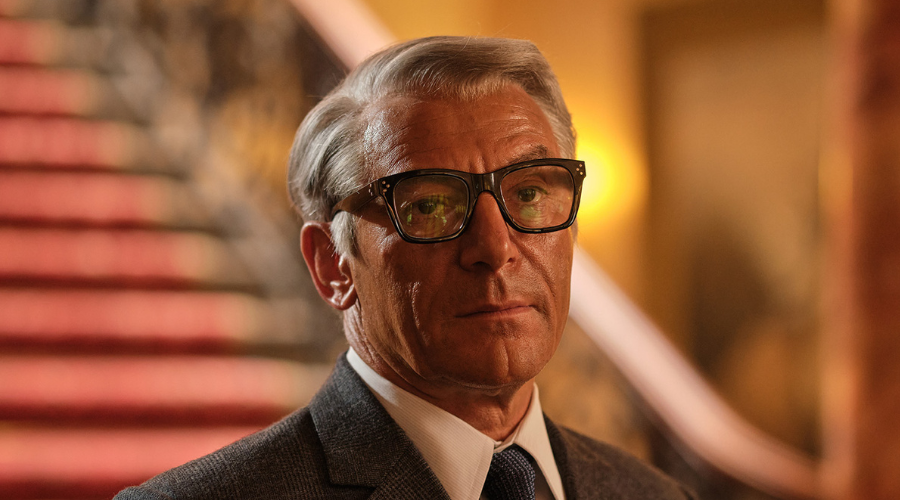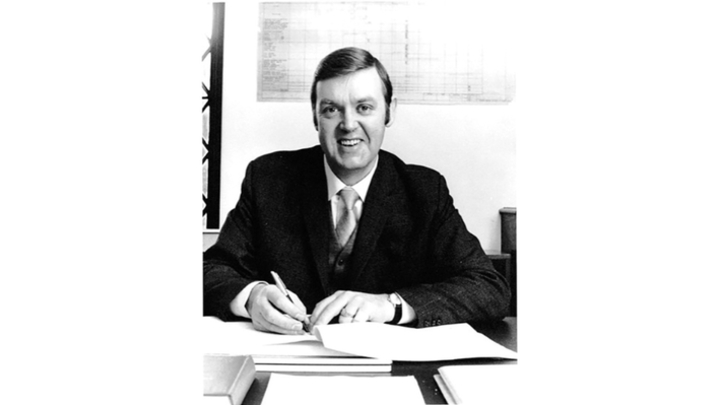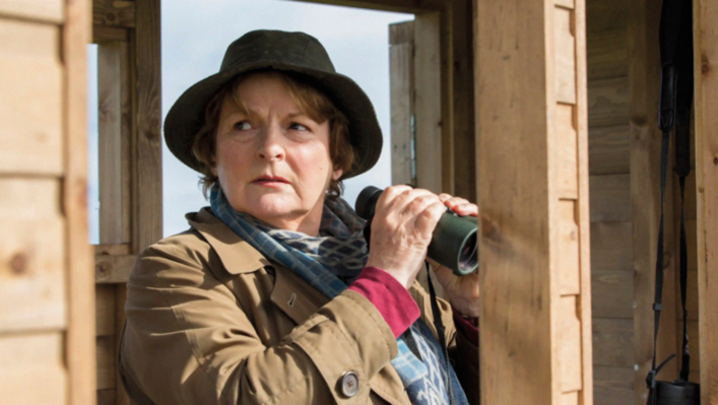ITV’s new Cary Grant biopic, Archie, explores the truth behind the legend.
Cary Grant was the ultimate Hollywood star, the suavest man on the silver screen during cinema’s golden age.
Whatever the role – from the unscrupulous newspaper editor of His Girl Friday to ordinary-man-on-the-run in North by Northwest – he was always Grant: charming, urbane, the epitome of cool.
Surely, then, only the vainest of actors would sign up to play him in Archie, ITV’s new four-part drama about Grant, written by Jeff Pope?
Jason Isaacs’s initial reaction when approached was dismissive. “Who’s the idiot who’s written this? Why would anyone try to put Cary Grant on the screen? You’d have to be a moron to take the job,” he says.
“But I’d seen Jeff Pope’s work and he’s not an idiot… so I read [his script] and [realised] Cary Grant didn’t exist; [he] was someone that a man invented because he was so tortured and he needed – not that he was aware of this necessarily – the love of as many people as he could get, possibly the whole world, to fill a hole inside him. And it didn’t.
“The first time, maybe, that he felt he belonged… was when he had a daughter, and I recognised that in myself. I thought: ‘I can play a really messed-up man who can fake many things in many situations to many people. I can’t play Cary Grant, but I can have a crack at playing Archie Leach.’”
Archibald Alec Leach was born into grinding poverty in 1904. His Bristol childhood was unimaginably awful: following the death of his elder brother, his grieving mother was callously committed to an asylum by his father, who then abandoned him.
As a teenager, Archie sailed to New York as a stilt walker in a vaudeville troupe. He stayed, adopting the stage name Cary Grant and that inimitable, strangled mid-Atlantic accent.
At an airport, Pope had picked up a copy of Good Stuff: A Reminiscence of My Father, Cary Grant, by his daughter, Jennifer, and was intrigued. An initial meeting with her mother and Cary’s ex-wife, the actor Dyan Cannon, followed shortly after Pope had finished Philomena, the multi-award-winning film written with Steve Coogan.
“When I first talked to Dyan, it was going to be a movie,” says Pope. “In the end, it was a blessing that I didn’t try to boil it down into 90 minutes… We wouldn’t have got anywhere near to the essence of the guy.”
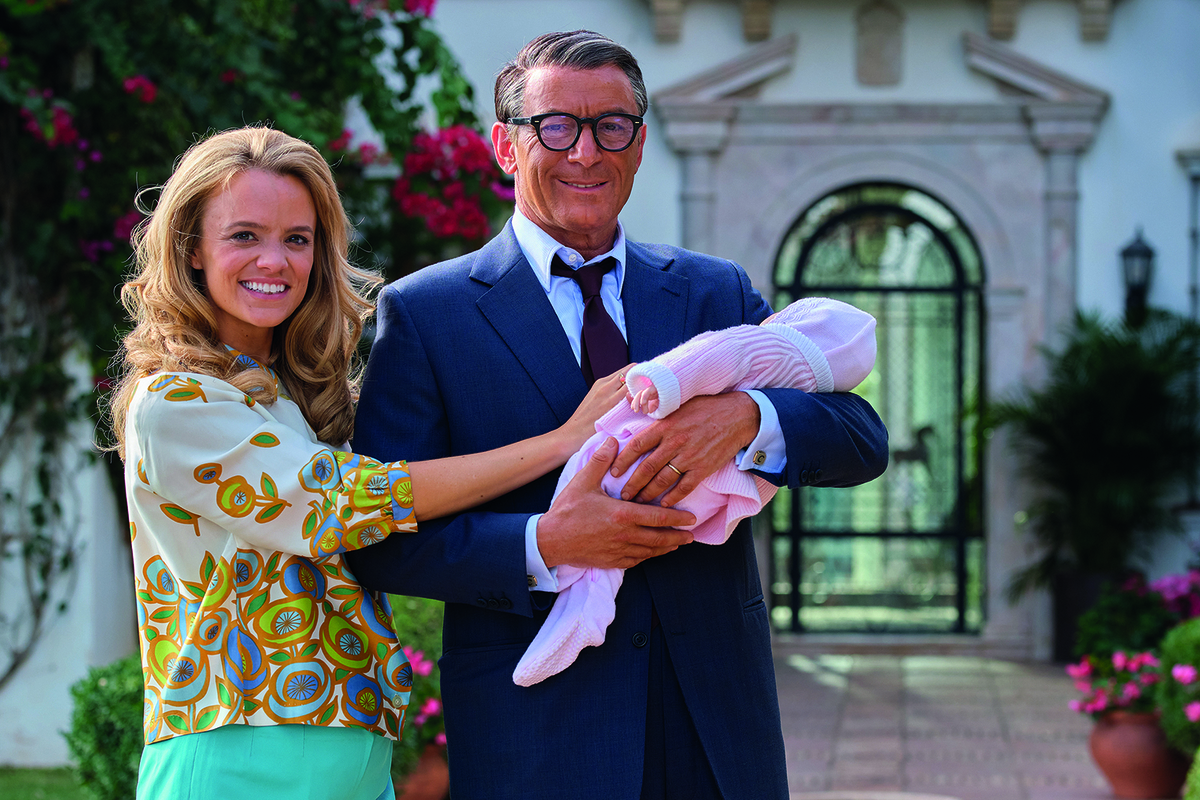
Archie bubbled along for years as a project before Pope finally started to write it shortly before the pandemic.
By then, the writer – normally associated with factual crime dramas such as Little Boy Blue and Suspect: The Shooting of Jean Charles de Menezes, now filming – had made another foray into Hollywood, writing the screenplay for Stan & Ollie, an affectionate film depicting Laurel and Hardy’s twilight years.
Scripting Archie required great sensitivity. “I had to tell the story that I wanted to tell, but it was difficult for Jennifer to have her dad’s dirty laundry hung out in front of everyone,” says Pope. “Diane would talk about his controlling behaviour and some of the darker stuff, such as encouraging her to use LSD. That was tough for Jennifer.
“Ultimately, she gave her blessing because there is context – Cary is not some kind of psychopath behaving in an odd, controlling, disturbing way for no reason. It hasn’t come out of nowhere.
“Right from the beginning, the ground rules were that it had to be my take. But that didn’t mean we didn’t argue – we did. We did get there and they’re happy with the finished product and I am, too. I don’t think it pulls punches.”
As Pope says, Archie doesn’t flinch from portraying Grant’s dark side, but it is also a homage to the glitz and glamour of Hollywood. Pitch-perfect portrayals of Grace Kelly, Doris Day, Alfred Hitchcock and others pepper the drama. Director Paul Andrew Williams even restaged a famous scene from Hitchcock’s North by Northwest, Pope’s favourite Grant film.
The screenwriter admits to embarrassment about the latter: “I hadn’t twigged that [the scene in which] Cary dived down to escape the crop duster was shot in the studio. I thought we were going to be out in a big cornfield.”
Isaacs read a mound of biographies in researching the role, and the court papers from Grant’s various divorces. What he couldn’t find was footage of the actor off-screen to hear and thus mimic his accent when he wasn’t acting. “Good luck finding interviews with him; he didn’t want to be seen; he didn’t want to be known,” says Isaacs, who played Lucius Malfoy in the Harry Potter films.
Eventually, Isaacs came across an interview recorded by a student towards the end of Grant’s life, taped against the actor’s wishes. “He hadn’t played it to anyone in nearly 40 years out of respect and a sense of responsibility. After much begging, he played it to me and I heard many of [Grant’s] insecurities and felt I’d finally made a real connection.
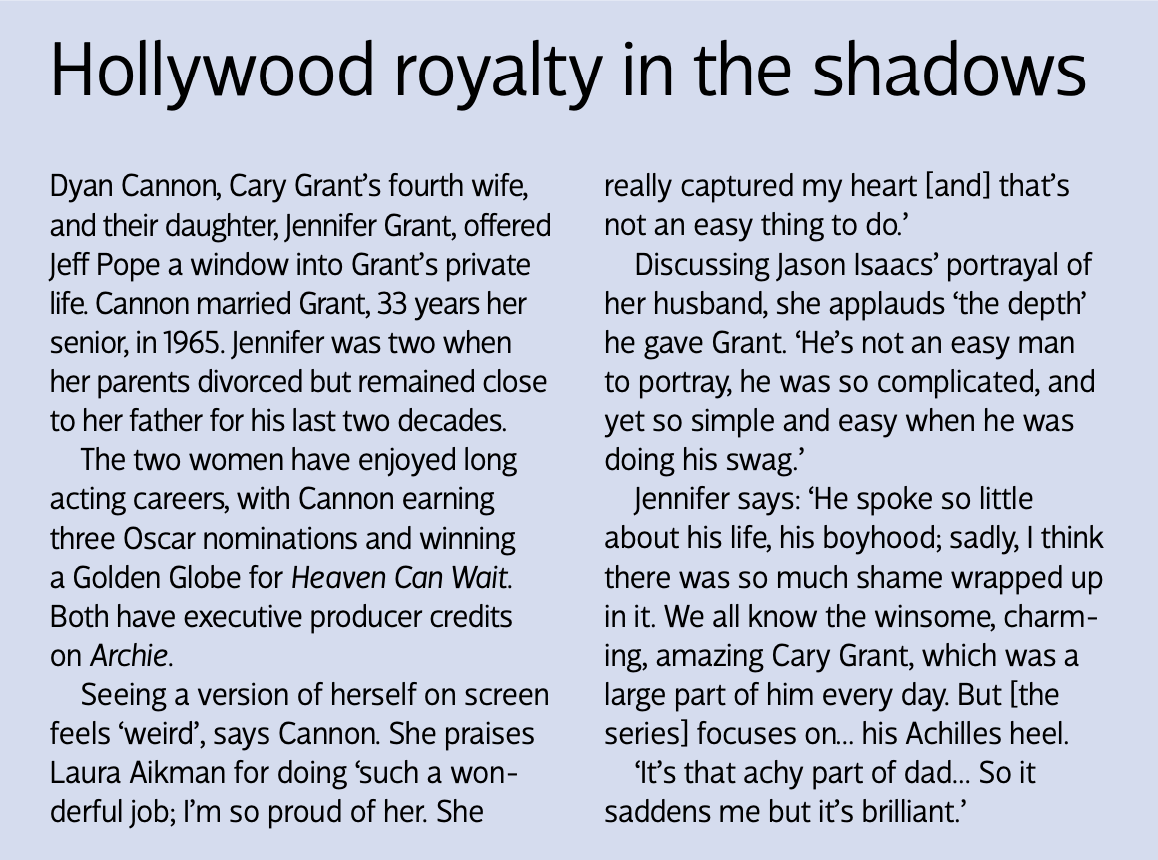
“That’s the voice you hear [in Archie]; it’s more English than he is in the movies. [People] think they remember Cary’s voice, but what they really remember is Tony Curtis in Some Like It Hot. That’s not who he was.”
Dyan is played by Laura Aikman, who recently appeared in the British film Scrapper. To research the role, she watched Cannon’s appearances on The Tonight Show Starring Johnny Carson. “I got obsessed with these interviews of her on Carson and I fell head over heels for Dyan. She’s so funny and charming and sexy,” she says.
Aikman is great, holding her own with Isaacs, whose performance is extraordinary. She nails Cannon’s decency and charm, assisted by an uncanny resemblance to her: “You get these auditions and you think: ‘I’m not going to get that.’ And then I started looking at pictures of Dyan and thought I might have a look in, actually.”
Briefly, Grant finds happiness with Cannon. “For all that he had a massive footprint all over the world, it’s a very personal, domestic story of Cary and Dyan’s time [together],” says Isaacs.
The torment, though, is never far away, says Pope: “Grant was the most urbane, suave movie star in the world, but he was also a dark, troubled man.”
Archie, produced by Etta Pictures, Jeff Pope’s ITV Studios label, airs on ITV from 23 November.

